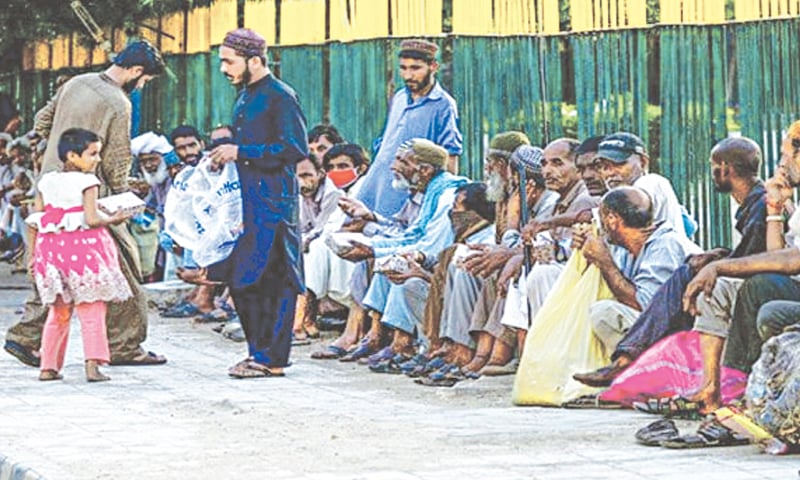Published in The Express Tribune on October 29, 2020
LAHORE: Around 90 million people are expected to fall into poverty as a repercussion of Covid-19, and the future of migrant workers of the South and South-East Asian economies does not seem encouraging, said Centre on International Migration, Remittances and Diaspora (CIMRAD) Director Rashid Amjad.
During the second international conference titled, ‘Impact of Covid-19 on migrants, migration flows and remittances, focus on South and Southeast Asia’, organised by the CIMRAD, Lahore School of Economics, he stated that aspiring migrants had to borrow and spend huge amounts to obtain work visas but are now facing an uncertain future as destination countries toughened their migration policies and air travel remains limited.
Amjad further added that in most countries the migrants were not responsible for spreading the disease as they constituted only a small minority of the population.
Speaking on the occasion, economic expert G M Arif highlighted the need to consider the pandemic’s impact on labour markets. According to his estimate, in between one to 2.5% of Pakistan’s total labour force would be affected as a consequence.
He asserted that unemployment could double due to the premature return of migrants and virtual stop on outmigration.
Nepal Institute of Development Studies (NIDS) researcher Mahendra Kumar Rai highlighted the halt in the flow of migrants, approximately 1,100 youth’s every day, before the pandemic as a major factor impacting the Nepali economy.
Lahore School of Economics Professor Dr Nasra Shah emphasised that the countries sending migrants should remain cognizant of not only the financial situation but also the non-economic factors, such as the impact of Covid-19 on kafala system, chain migration, and attitudes of the host countries that will determine the demand for foreign workers in the Gulf in a post-Covid scenario.
Dr Francoise DrBel-Air, a senior fellow at the Gulf Labour Markets and Migration Programme (GLMM), argued that all Asian expatriates in the Gulf constituted were low-skilled workers, pointing towards a hierarchisation of occupation according to countries of origin.
Endorsing other speakers’ views, Refugee and Migratory Movements Research Unit (RMMRU) Director Dr C R Abrar explored the various ways in which the return migrant in Bangladesh have been stigmatised by the Bangladeshi authorities.
Some, he claimed, were sent to prison from the quarantine centre under Section 54 of the Code of Criminal Procedure for suspicious activities. However, he added, measures to facilitate migrant workers under the pandemic have also been taken by the government that should not be ignored.
In the context of Pakistan, Lahore School of Economics research fellow Almazia Shahzad pointed out that Pakistan’s current experience of an unprecedented increase in remittances was no different than during the global financial crisis. In her assessment, the major contributing factor was the shift from informal to formal channels.
She reported that the number of transactions has more than doubled during the lockdown compared to the previous quarter, while the value of these transactions increased more than three times.
A similar unprecedented increase was also reported in Sri Lanka, added Institute of Policy Studies of Sri Lanka (IPS) Research Fellow Dr Bilesha Weeraratne. But she pointed out that regardless of the reasons for the surge remittance-receiving households were to benefit less. Regular remittances are received from Sri Lankan migrants in the Gulf region, who are also more vulnerable to the crisis.






